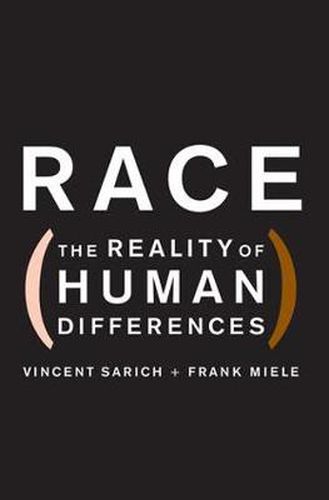Readings Newsletter
Become a Readings Member to make your shopping experience even easier.
Sign in or sign up for free!
You’re not far away from qualifying for FREE standard shipping within Australia
You’ve qualified for FREE standard shipping within Australia
The cart is loading…






The conventional wisdom in contemporary social science claims that human races are not biologically valid categories. Many argue the very words’ race and racial differences should be abolished because they support racism. In Race , Vincent Sarich and Frank Miele challenge both these tenets. First, they cite the historical record, the art and literature of other civilizations and cultures, morphological studies, cognitive psychology, and the latest research in medical genetics, forensics, and the human genome to demonstrate that racial differences are not trivial, but very real. They conclude with the paradox that, while, scientific honesty requires forthright recognition of racial differences, public policy should not recognize racial-group membership. The evidence and issues raised in this book will be of critical interest to students of race in behavioural and political science, medicine, and law.
$9.00 standard shipping within Australia
FREE standard shipping within Australia for orders over $100.00
Express & International shipping calculated at checkout
The conventional wisdom in contemporary social science claims that human races are not biologically valid categories. Many argue the very words’ race and racial differences should be abolished because they support racism. In Race , Vincent Sarich and Frank Miele challenge both these tenets. First, they cite the historical record, the art and literature of other civilizations and cultures, morphological studies, cognitive psychology, and the latest research in medical genetics, forensics, and the human genome to demonstrate that racial differences are not trivial, but very real. They conclude with the paradox that, while, scientific honesty requires forthright recognition of racial differences, public policy should not recognize racial-group membership. The evidence and issues raised in this book will be of critical interest to students of race in behavioural and political science, medicine, and law.